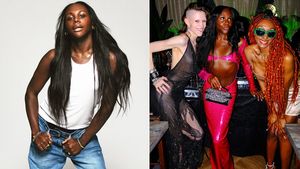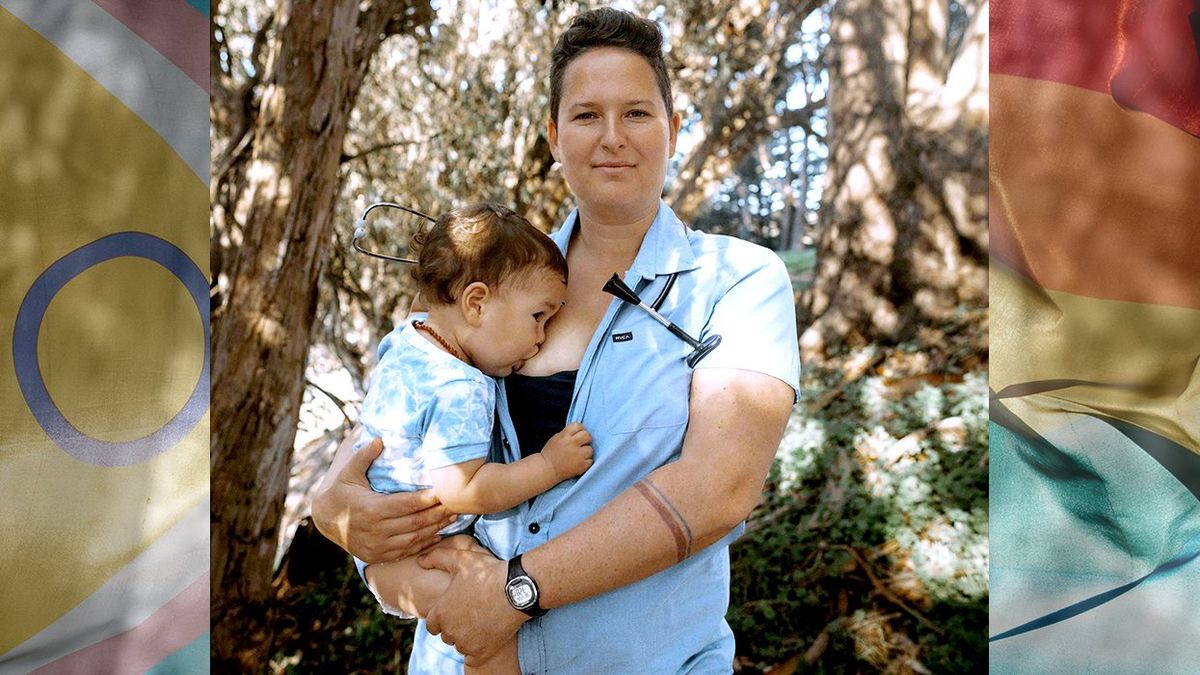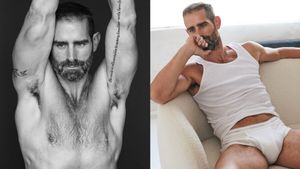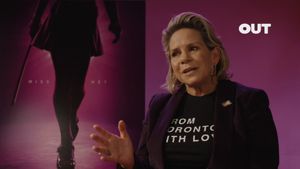An antigay U.S.
senator says Supreme Court nominee Harriet Miers has
assured him that a stand she took in favor of equal rights
for gays and lesbians 16 years ago would not factor
into her rulings on the Supreme Court, should she be confirmed.
Colorado Republican Wayne Allard is the Senate
sponsor of a proposed amendment to the U.S.
Constitution banning same-sex marriage. The Denver
Post reports that Allard met with Miers for
about 40 minutes. Afterward, Allard said he did not ask
Miers directly about her views on same-sex marriage or
the right to privacy. But he did ask her about her
responses to questionnaires she filled out during her
1989 run for the Dallas city council. Asked by the
Lesbian-Gay Political Coalition of Dallas whether she
believed gays and lesbians "should have the same civil
rights" as straight people, Miers responded yes. She
said she did not support the repeal of the Texas
sodomy law, however.
Allard told the Post he asked Miers
how--having taken a public position on gay
rights as a candidate--she would approach the
issue as a judge. Allard said, "She assures me that those
are her own personal views and as a judge she will
look at the facts of the case."
Allard said he does not believe Miers's
nomination is in peril despite criticism from the
Right. But as for himself, he told the Post he's not
ready to endorse her and plans to follow her
confirmation hearings before he decides whether he will.
Meanwhile, the White House is trying to have it
both ways in marketing Harriet Miers to disgruntled Republicans.
To conservatives, the president's aides talk up
a 1989 document showing she held clear anti-abortion
views. Then they pivot and tell everyone else those
were just the personal views of a candidate for the Dallas
city council and not a sign of how she might vote on the
Supreme Court.
Bush emphasized last week that "part of Harriet
Miers's life is her religion." Almost immediately
White House spokesman Scott McClellan complained that
too much was being made of her membership in an
evangelical Christian church. Bush said he knows her heart
and that she won't change. Except she has. She was a
Catholic when she was young. And she was a Democrat
who turned Republican.
So far, the strategy seems to have made neither
side happy. Social conservatives remain skeptical of
her credentials and judicial philosophy, and Democrats
are finding more reason to oppose her.
That the president seems to be speaking out of
both sides of his mouth escapes nobody. "They try to
reassure conservatives that she's pro-life. Then two
hours later McClellan gets out and says this doesn't
say anything about how she would rule. I don't think that
was very effective," said William Kristol, editor of
the conservative Weekly Standard magazine.
Democrats were saying much the same thing but
from the other side of the political spectrum. "We
know less about this nominee than we knew about any
previous nominee, and her questionnaire shines no light on
what would be the most illuminating
experience--her service in the White House,"
Sen. Charles Schumer of New York, a member of the Senate
Judiciary Committee, said Wednesday.
The panel will begin confirmation hearings
November 7. Democrats said internal documents related
to Miers's service as White House counsel were needed first.
In the past Bush could count on the support of
conservatives, even when his actions didn't live up to
his rhetoric on matters such as pushing for
constitutional amendments banning abortion and same-sex
marriage or permitting school prayer. No longer. Fred
Greenstein, a political scientist at Princeton
University, suggested the need to do damage control
over the flawed early response to Hurricane Katrina and to
the CIA leak investigation may have thrown Bush and
his advisers off stride.
Miers might be a good choice for the court, but
the nomination "needed more in the way of preparation
and groundwork," Greenstein said. "Sometimes
presidents either make bad choices or make defensible
choices but don't follow through and defend them."
(AP/Tim Curran,Sirius OutQ News)















































































